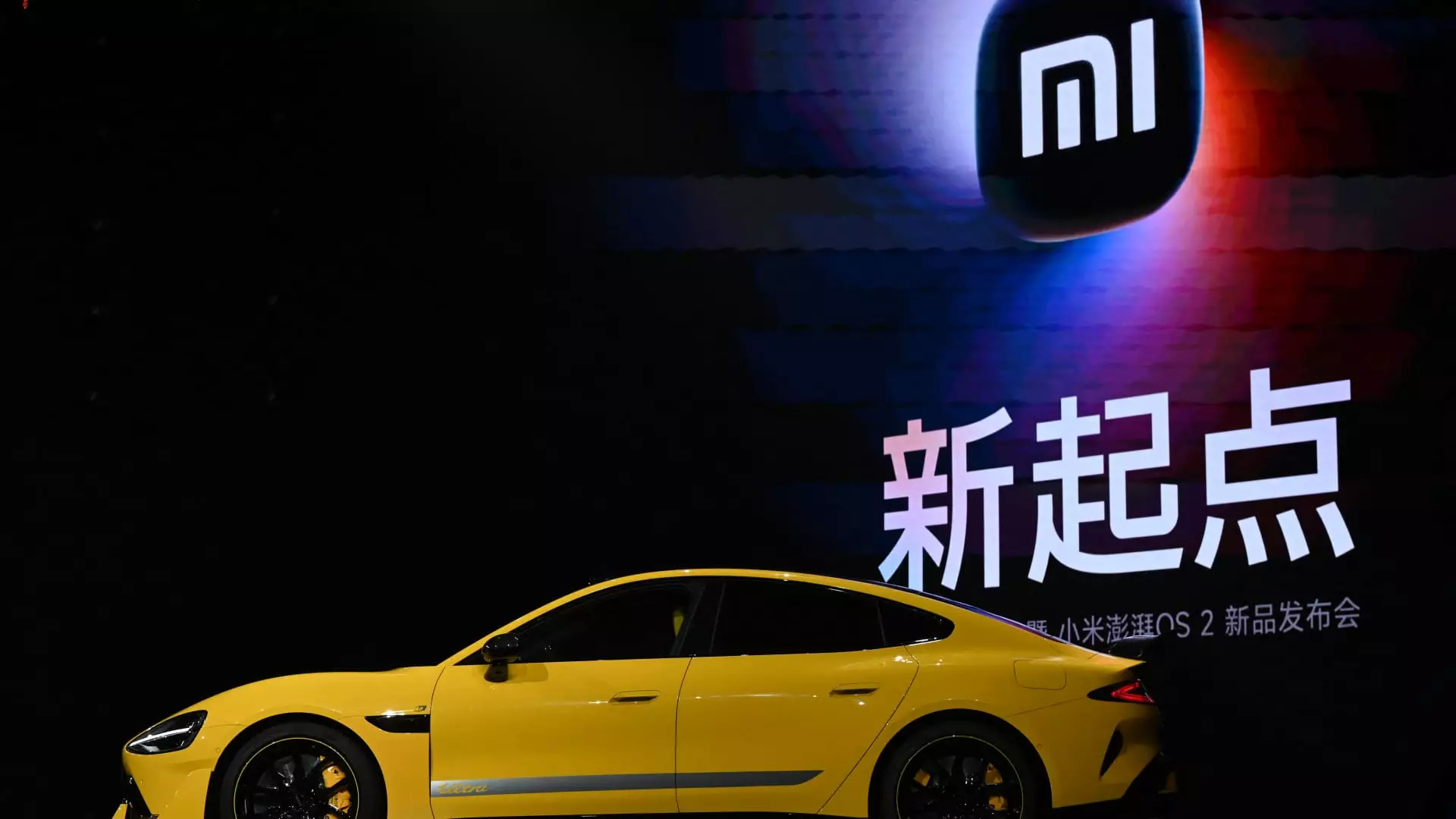In recent years, the electric vehicle (EV) landscape has been transformed by an influx of new competitors, and Xiaomi is making waves as it asserts its presence in this dynamic sector. The Chinese technology company, originally renowned for its smartphones and consumer electronics, has taken significant strides towards becoming a formidable player in the EV market. With a reported delivery of over 20,000 units of its SU7 electric vehicle in October alone, Xiaomi is positioning itself for success despite the fierce competition it faces.
In a bold announcement, Xiaomi has stated its intention to deliver a total of 100,000 SU7 vehicles by the end of November. This ambitious target reflects the company’s commitment to ramping up its manufacturing capabilities since entering the automotive industry just two years prior. The SU7 is Xiaomi’s first foray into the automotive market, aimed at providing an affordable alternative to existing models like the Tesla Model 3. The SU7 was launched with a competitive price tag that was significantly lower than Tesla’s, prompting the latter to respond with price cuts to retain its market position.
What sets Xiaomi apart in this crowded market is its rapid growth in production and delivery timeline. As targets are anticipated to be met ahead of schedule, the contrast is striking when compared to other manufacturers in the field such as Xpeng and Nio, which took considerably longer to reach the same production milestones. Analysts have noted that Xiaomi’s swift deliveries of the SU7 not only showcase its manufacturing efficiency but also highlight the strategic execution of its market entry.
Xiaomi is not alone in its ambitious push into the EV sector; it is entering a battleground populated by other aggressive players. For instance, both Xpeng and Nio have shown promising growth, with Xpeng achieving a record of over 20,000 deliveries in a single month. This competitive burden underlines the critical need for innovation and marketing strategies as companies vie for consumer attention and market share. Geely’s Zeekr has also made headlines with rapid production milestones, further intensifying the competitive dynamics in the electric vehicle space.
As Xiaomi continues to roll out its SU7 model, which has to date surpassed the 75,000 delivery mark, analysts are beginning to take note of its evolving position within the market. Xiaomi’s differentiation lies not only in its pricing but also in its ability to capitalize on established technology networks through its history in the electronics industry. The potential for cross-platform synergy between its smartphone technology and automotive innovations could prove advantageous.
Future Directions and Innovations
Recently, Xiaomi announced preorders for an upgraded version of its SU7, dubbed the SU7 Ultra, which comes with a hefty price tag of approximately $114,304. This points to a future where Xiaomi diversifies its offerings, catering to high-end segments of the market. Interestingly, preorders for the SU7 Ultra surged, with over 3,600 placed within just ten minutes of the announcement. Analysts expect this trend to continue as consumers are attracted to the product’s performance potential, especially after claims regarding its record-breaking performance on the Nurburgring race track.
The potential of Xiaomi’s electric vehicle lineup not only captivates local interest but indicates broader aspirations for global expansion. Currently focusing on the Chinese market, Xiaomi’s strategic plan includes ramping up international developments. However, experts estimate that it may take several more years before the company launches its vehicles overseas, giving them time to refine both their production strategies and product offerings.
As Xiaomi strives to elevate its position in the automotive industry, it is crucial to maintain flexibility in strategy while fostering constant innovation. The EV market is notoriously volatile, and sustained success depends on Xiaomi’s ability to navigate challenges effectively. With its plans to deliver 250,000 vehicles next year, coupled with the introduction of an expanded range of products, the company is determined to solidify its foothold in a sector poised for exponential growth.
Xiaomi’s journey into the electric vehicle market is at an exciting juncture. While challenges lie ahead, the company’s early successes underline its potential as a serious contender in a landscape marked by rapid change and fierce competition. As Xiaomi draws from its strengths, the automotive world will undoubtedly be watching how this innovative firm continues to unfold.

